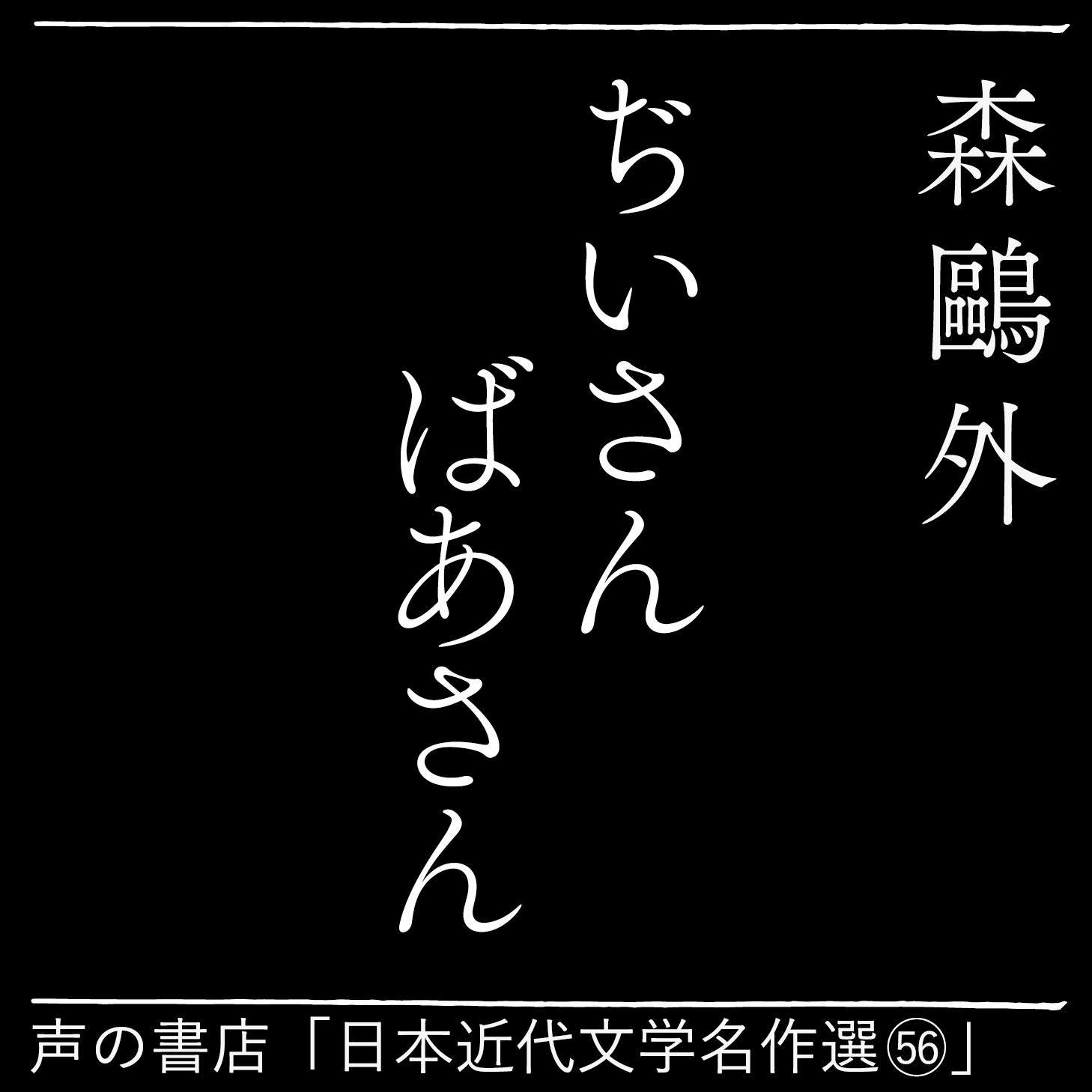
Jiisan baasan(The Old Man and the Old Woman)
【Masterpieces of Modern Japanese Literature(56)】
By Ogai Mori
Narrated by Nana Nagao
Buy from Retailers
A short story by Ogai Mori
“It was toward the end of spring in the sixth year of the Bunka era. In Azabu Tatsudo-chō, on the plot of land now occupied by the Third Infantry Regiment barracks, a carpenter had entered the grounds of the residence of a daimyo named Matsudaira Sashichirō Norikata, lord of Okuden in Mikawa Province, and was repairing a small, bright house. When neighbors asked whose residence it would be, they were told that it was being prepared as a retirement home for a member of the Matsudaira household named Miyashige Kyuemon. Indeed, it was a modest yet pleasant house suitable for a detached sitting room, though the kitchen alone, small as it was, had been built separately. When neighbors asked whether Kyuemon would actually retire there,”
This audiobook is a new recording of the “Reading Timeless Story Series” that was performed at the Museum of Modern Japanese Literature on July 12, 2025.
Author : Ogai Mori
Narrator : Nana Nagao
Produced by:Koé no Shoten
Special Thanks:Shigoto, Inc. / ROUDOKU.TALKER.JP
Listening Length:
Release Date:2025/11/3
*For how to listen, pricing, purchase methods, payment options, and more, please check each distribution site.
ABOUT THE AUTHOR
1862 – 1922
Born in Iwami Province (present-day Shimane Prefecture), his real name was Rintarō Mori. After graduating from the University of Tokyo’s Faculty of Medicine, he became a military doctor and studied in Germany for four years from 1884. Upon returning to Japan, he published the translated poetry collection Omokage in Kokumin no Tomo in 1889. That same year, he launched the literary criticism magazine Shigarami Sōshi, beginning his career in literary enlightenment. The following year, he published the novel Maihime (“The Dancing Girl”), depicting the tragic love story between a Japanese student and a German woman. From 1892, he serialized a translation of Sokkyo Shijin . He served in the First Sino-Japanese War and, upon his return, founded the magazine Mesamashi-gusa. In 1904, he took part in the Russo-Japanese War as a military doctor. After launching the literary magazine Subaru, he published works such as Wita sekusuarisu(”Vita Sexualis”), Seinen (“Young Men”), and Gan (“The Wild Geese”). He also wrote historical novels, including Okitsu Yagoemon no isho(”The Last Testament of Okitsu Yagoemon”),Abe Ichizoku(”The Abe Clan”), and Takasebune(”The Boat on the Takase River”), as well as the biographical work Shibue Chūsai . Mori laid the foundation for modern Japanese literature.
